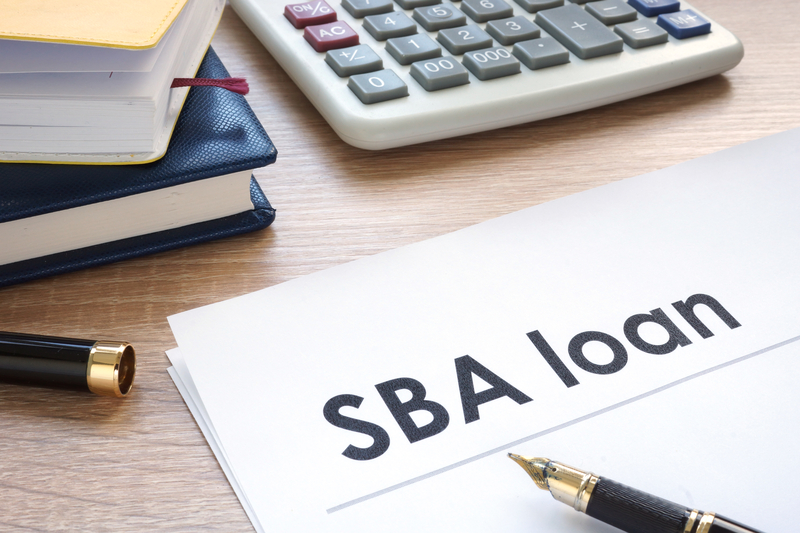When you hear about new government regulations the first thing that comes to mind is “Now what!”, but this year the SBA made some great changes for small businesses! This is great news for buyers looking to buy a small business as well as owners considering selling their business. As business brokers SBA financing has always been our preferred financing method and the new rules are making SBA-financed business sales even more attractive.
The two primary SBA loans are the 7a for business acquisition and the 504 which is generally for real estate and also for capital equipment. The business broker representing the business you are inquiring about can refer you to a lender and in many cases may have had a lender review the business for SBA financing. We work with several SBA PLP lenders and have long-running relationships with the top lenders in our area.
SBA Loan Changes for 2018
The new rules lower the minimum down payment for buyers, eliminate the mandatory 24-month standby on Seller Notes, and acquisitions with real estate can now be financed for 25 years!
Down Payment Requirements Reduced
The long-standing minimum down payment for a business acquisition loan was 25%, which could be reduced to as low as 10% if the seller would carry a Seller Note for the other 15%. One severe drawback on the Seller Note was that the SBA required it to be on “Standby” for 24 months, which meant the seller would receive no payments until month 25. Obviously, sellers were not happy about waiting two years before they received any payments on the seller note and this was a major drawback in asking sellers to carry a note.
The new rules are:
- Down Payment now 10%, 90% SBA financing!
- 10 year term for SBA 7a business acquisition loans
- 25 year term for SBA 504 real estate loans
- Buyer Equity can be as low as 5% with a Seller Note of 5%
- The buyer down payment can be as low as 5% with a Seller Note of 5%
For example, $1 million business acquisition transaction
- Business value $1 million
- Minimum buyer down payment of 5%: $50,000
- Seller Note of 5% for remaining down payment: $50,000
- SBA financing: $900,000 for 10 year term, typically prime + 2.75%
Seller Note Standby Eliminated, sort of
As we said above the standby requirement for all Seller Notes has been eliminated in general, but there is one exception. If the Seller Note is part of the required buyer equity injection (down payment) then the Seller Note is on Standby for the life of the loan.
For example, if the buyer is injecting the minimum equity of 5% and the seller is providing the other 5% of the down payment then that Seller Note is on Standby for 10 years for a 7a loan and no payments would be made to the seller until month 121.
25-Year Financing with Real Estate
If the business acquisition includes the real estate associated with the business, and the value of the real estate is 51% or more of the transaction value, the entire transaction can be financed for 25 years.
For example, if the business being acquired is valued at $1 million and the building is valued at say $1.5 million, the entire $2.5 million transaction can be financed over 25 years with just 10% down.
SBA Loan Facts
- “The SBA” is NOT a lender or a bank. The SBA, Small Business Administration, provides guarantees for SBA approved loans made by banks to small businesses. SBA approved banks are the actual lender and each bank does their own underwriting and approvals.
- Not all banks are the same. Make sure you are working with a SBA PLP (Preferred Lender Program) bank. PLP lender do their own underwriting and approvals and do not need to submit each loan to the SBA for approval which can take weeks. We only work with PLP lenders and have an excellent relationship with several SBA lenders.
- Bank have different requirements. SBA lending requirements are broad and have quite a bit of latitude for banks. Consequently, every bank is different and one bank may decline a loan and another may approve it. Likewise, some banks will not lend to specific industries. We work with several banks that we have had long relationships with.
- Beware “loan brokers”. While there are certainly some good loan brokers out there, many will over promise to buyers and then shop the loan to find a bank that will do it. This often takes weeks and has disappointing results. Loan brokers do not do the underwriting, only the actual lender can do that, thus they have no way of knowing if the loan will actually get approved. We prequalify our businesses for sale for SBA financing with our preferred lenders and work with the buyer and the bank to facilitate financing for the transaction.
- Is Collateral required? While technically there is no absolute requirement for collateral, having collateral certainly helps. If the transaction has great cash flow, the buyer has excellent credit and experience, and the business history is excellent the bank will be less demanding about collateral. If the transaction is weak in some of these areas then the bank will certainly want collateral.
- Loan Guarantee and Collateral: The buyer will have to provide a Personal Guarantee on the loan and pledge available collateral. Minority shareholders-owners that have less than 20% interest in the company do not have to provide a personal guarantee or pledge any collateral.
- Credit Score: Again there is no absolute credit score requirement, this is left to the bank to determine and it varies depending on the size of the transaction, the buyer’s experience, and the cash flow of the business. Typically a credit score of at least 700 would be required and a higher score for larger transactions.
- SBA maximum Loan amount is $5 million.





